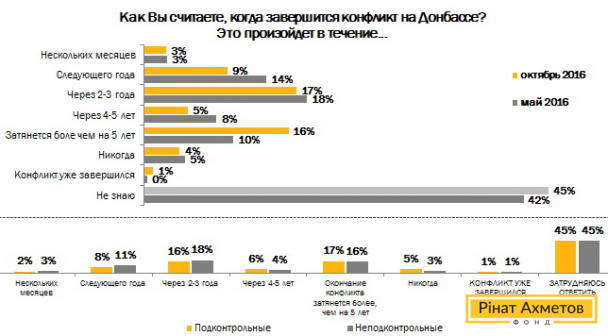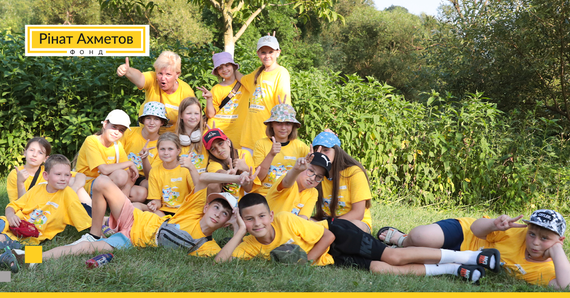How long will the conflict last according to opinions of Donbas residents?
Every sixth resident of Donetsk region believes that the conflict will stretch on for more than five years. This is confirmed by results of sociological study conducted in October-November 2016 by Kyiv International Institute of Sociology and commissioned by Rinat Akhmetov Humanitarian Center and Dopomozhemo TV.
"People's hopes for peace establishment in Donbas keep on reducing. Almost half of the region residents cannot imagine, when the conflict comes to an end. As compared to the data obtained in May, the number of those expecting the conflict to be over during the next year has reduced (October - 12%, May – 17%), but the number of those believing that conflict settlement will require more than five years has increased (October - 16%, May – 10%)", - Volodymyr Paniotto, KIIS General Director, shared.
According to Paniotto, "assessments of short-term prospects of population in Donetsk region became more pessimistic over the last four months. The number of those residents expecting improvement of their lives has reduced by 10% (there are 24% of them now), and the number of those believing that in a year their family will live worse than now has increased as well (22% now). The most pessimistic forecasts are coming from retired people".
According to KIIS research results, one third of the population in Donetsk region expects improvements in economic situation, half of the population does not believe in improvement in the long-term perspective.
"Assessment of perspective strongly depends on the place of residence. The most popular opinion among residents of non-government-controlled areas is that Donbas becomes the region of economic prosperity. 36% think so", - Paniotto specified.
KIIS sociological research called "Donbas: life and barriers" was conducted as a telephone survey through October 21-November 7, 2016 and commissioned by Rinat Akhmetov Humanitarian Center and Dopomozhemo TV. 2,102 respondents older than 18 from 100 settlements (towns and villages) of Donetsk region, both in government-controlled and non-government-controlled areas, were polled as part of the research.






